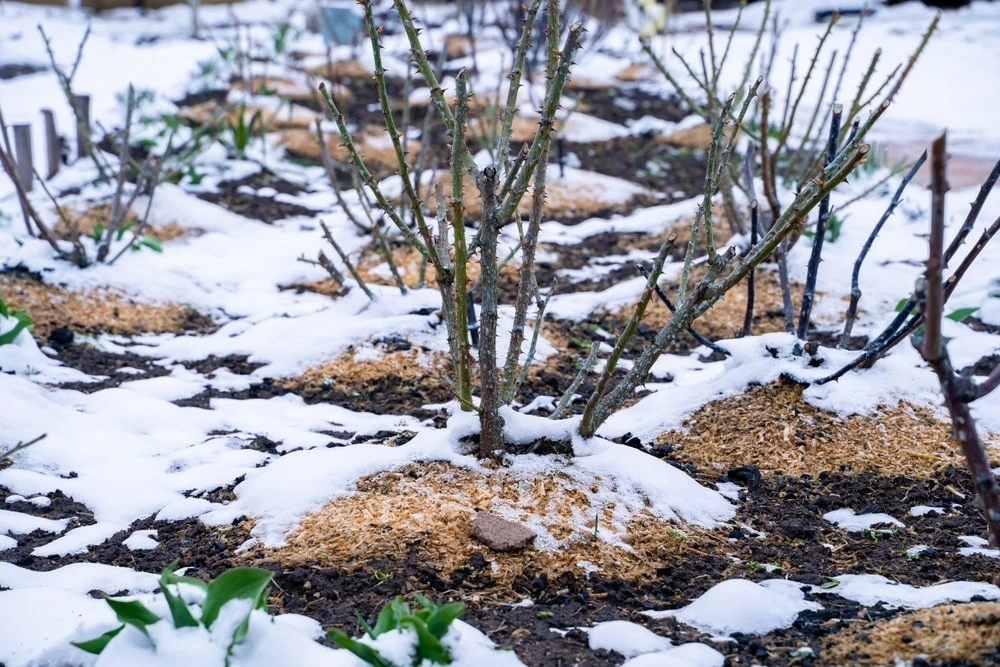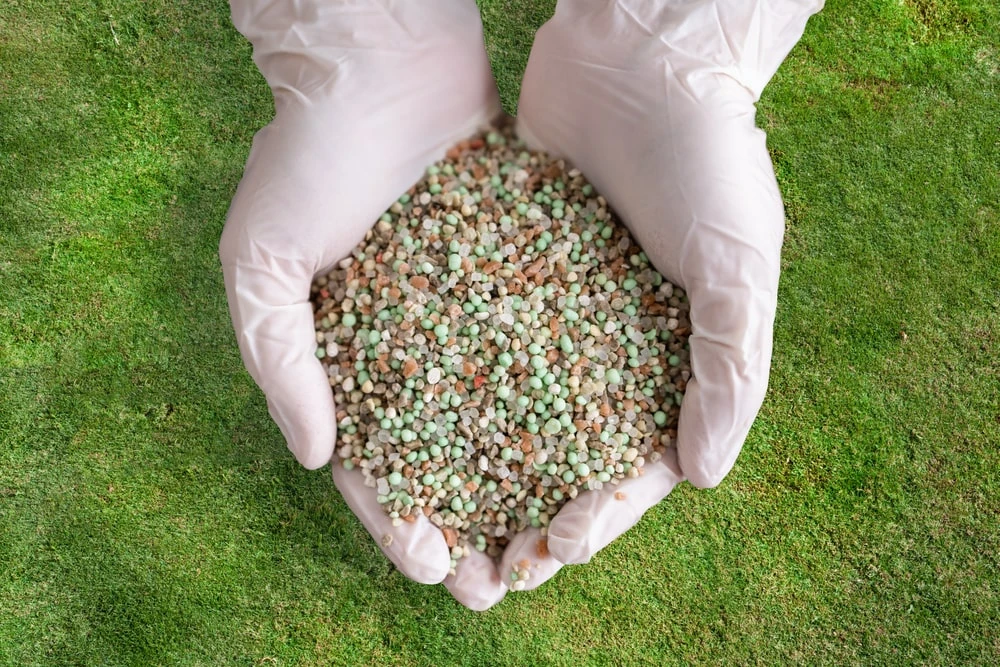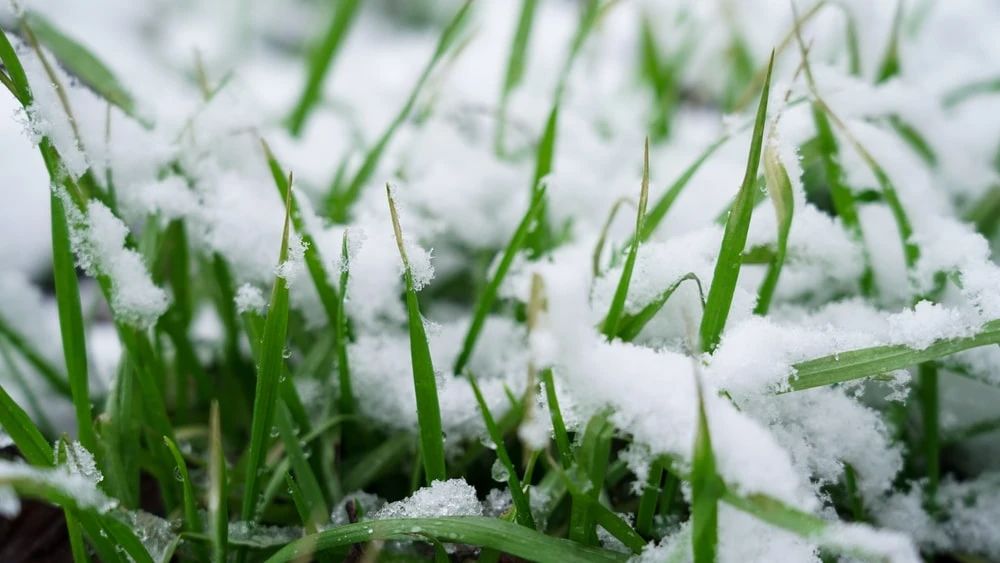The Grounds Guys recommend key steps for winter fertilization to protect your lawn.
|
Last Updated August 16, 2023
Like hibernating bears, most plants settle down for a long winter's nap. Their metabolism slows as they enter dormant states, and some — such as deciduous trees and shrubs — shut down almost completely after their leaves drop in autumn. But deciduous plants are able to survive winter dormancy on the stored food reserves they manufactured the previous growing season. Although conifers may appear to be growing in winter because they remain vibrant green, their growth processes almost screech to a halt, as well.
Unless the ground is completely frozen, plant roots continue to grow over winter. So, if you supply nutrients properly during the winter to nourish the roots, your lawn, and garden can get a healthy head start on spring growth. Local lawn care experts like The Grounds Guys® can help you determine how winter fertilizers ("winterizers") can benefit your lawn and garden and the best ones to choose based on your landscape and region.
Regardless of the time of year that you apply fertilizer to your yard, the first step is testing the soil. If you supply nutrients that your plants don't need, you'll waste not only money but also the time spent applying the fertilizer. Additionally, you may put your plants in harm's way. Excessive fertilizer can burn plant roots, damage plant tissues, and even cause plant death.
If your soil test results reveal a nutrient deficiency, a lawn care expert will recommend which type of winter fertilizers your plants need, and can apply only the necessary amounts to save you money and protect your plants from chemical burns. Although you won't see immediate results above the ground from winter fertilizer applications, the underground root system is strengthened so it can better support new shoot growth in spring.
Table of Contents:
- Why Do You Need Winter Fertilizers?
- Organic Winter Fertilizers
- Synthetic Winter Fertilizers
- Slow-Release Winter Fertilizers
- Liquid Winter Fertilizers
- Winter Fertilizer Application
- Preparing Your Garden for Winter Fertilization
- Winter Fertilization Schedule
- Benefits of Winter Fertilization
- Winter Fertilizer Basics & Tips
Why Do You Need Winter Fertilizers?
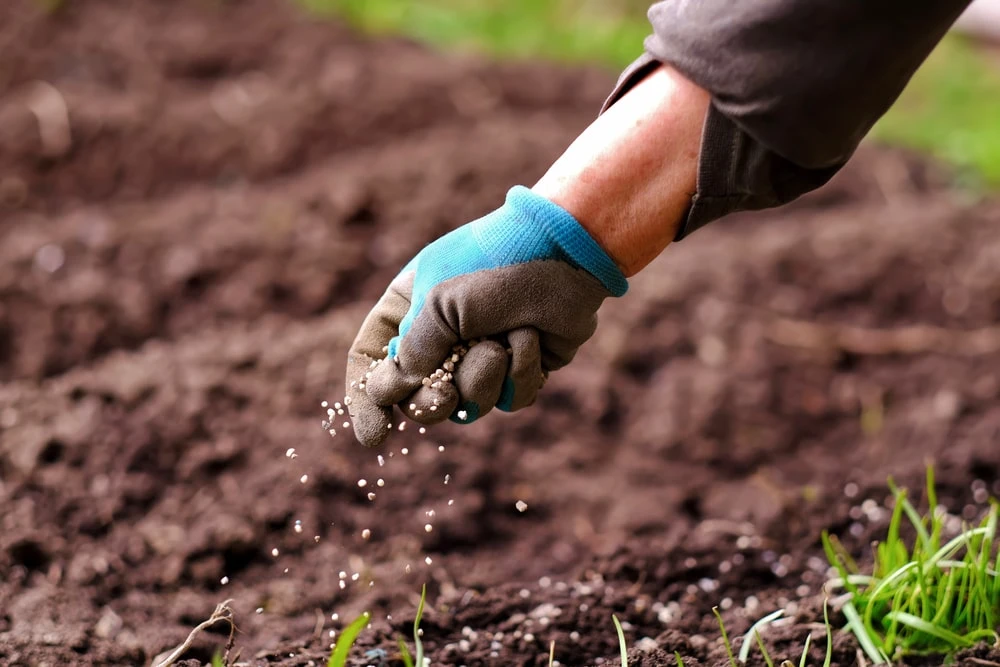
Fertilizing in the winter is a great way to prepare your trees, plants, and grass for winter dormancy. Applying fertilizer for winter provides your plants with essential nutrients they need to get through the winter healthy and strong. The plants then store the nutrients during wintertime to thrive and grow in spring. Fertilizers for the winter should include a mix of slow-release and faster-release nitrogen.
So, what type of fertilizer for winter works best? It depends. There are several types of fertilizers for winter use. Each “winterizer” has its advantages and disadvantages, which we review below. So , let’s dive right in and get to the root of which winter fertilizer is right for your yard.
Organic Winter Fertilizers
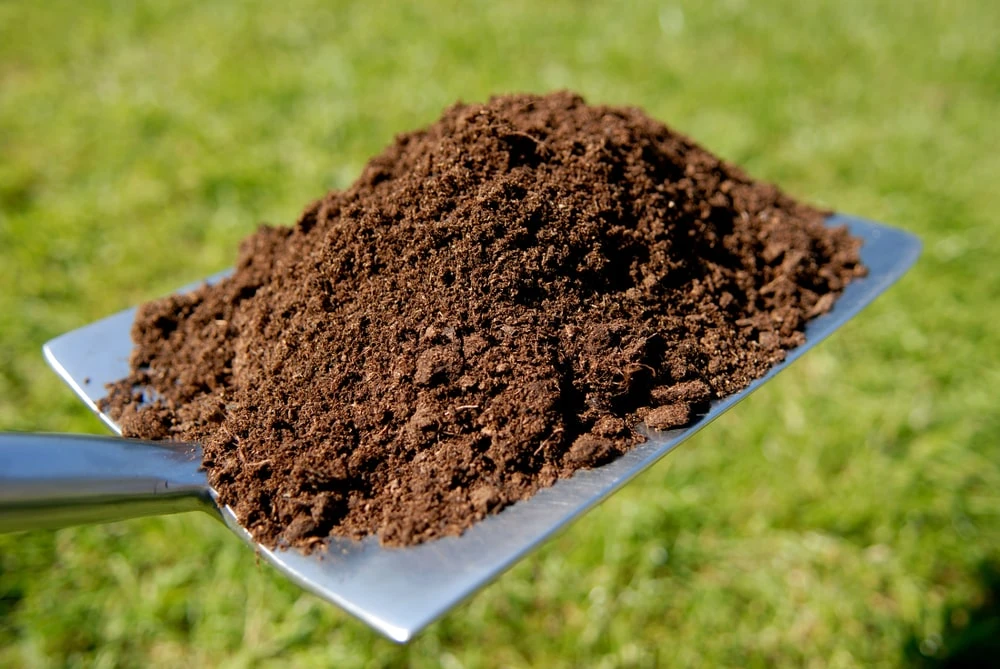
You can keep your lawn looking lush and beautiful without using harsh chemicals. Organic winter fertilizers prepare your grass for springtime success without introducing harmful substances. Here are some other pros and cons:
Pros:
- You, your family, and your pets aren’t exposed to harmful chemicals.
- It won’t burn your lawn.
- Potentially harmful chemicals won’t leach into the soil and groundwater.
Cons:
- It may take longer and more effort to see results.
- It could result in more weeds.
- Could cause a grub outbreak (which can damage your lawn).
Synthetic Winter Fertilizers
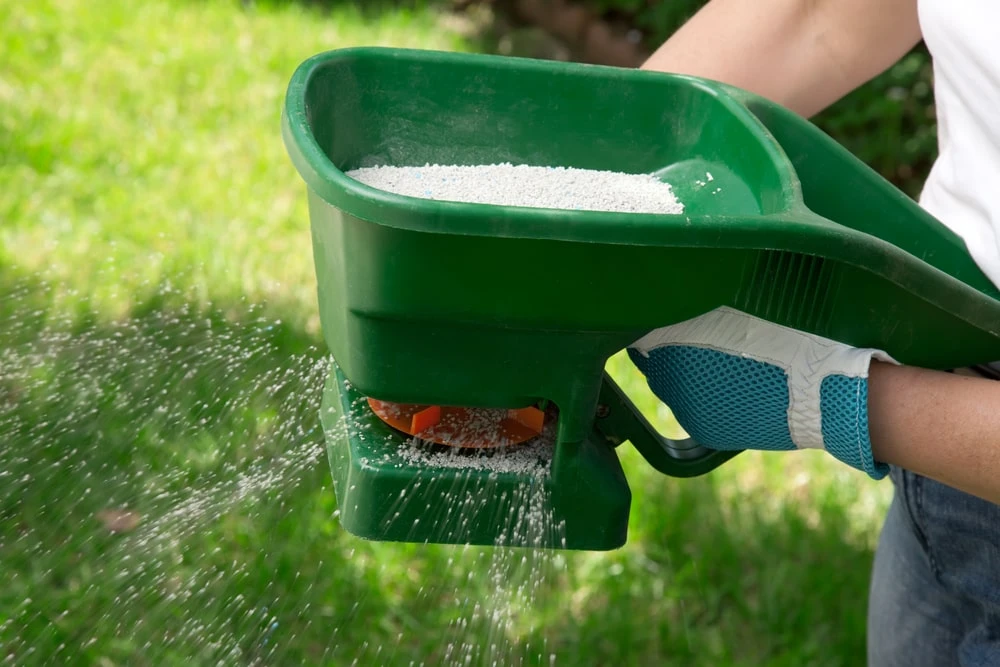
Synthetic winter fertilizers are great at preventing weeds and disease. They can also help your grass grow green and healthy when spring arrives. But unlike organic fertilizers, which focus on soil health, synthetics focus mainly on the lawn’s appearance. Here are more pros and cons related to using synthetic fertilizer:
Pros:
- Cost (usually less expensive than organic).
- Fast-acting. Reaches grass and plant roots quickly.
- Easy to use and apply.
Cons:
- Don’t usually contain beneficial micronutrient organisms.
- Easy to over-apply, which could burn your lawn.
- May release the nutrients too quickly or too slowly.
Slow-Release Winter Fertilizers
Another option to consider is a slow-release winter fertilizer. These types of fertilizer, as the name implies, release all their nutrients over an extended time. Here are some of the pros and cons of using a slow release fertilizer:
Pros:
- More even distribution of nutrients over time.
- Helps prevent a nitrogen overload.
- Continuous availability of nitrogen for a longer period.
Cons:
- Won’t notice an instant green up (Not as noticeable during winter months)
Liquid Winter Fertilizers
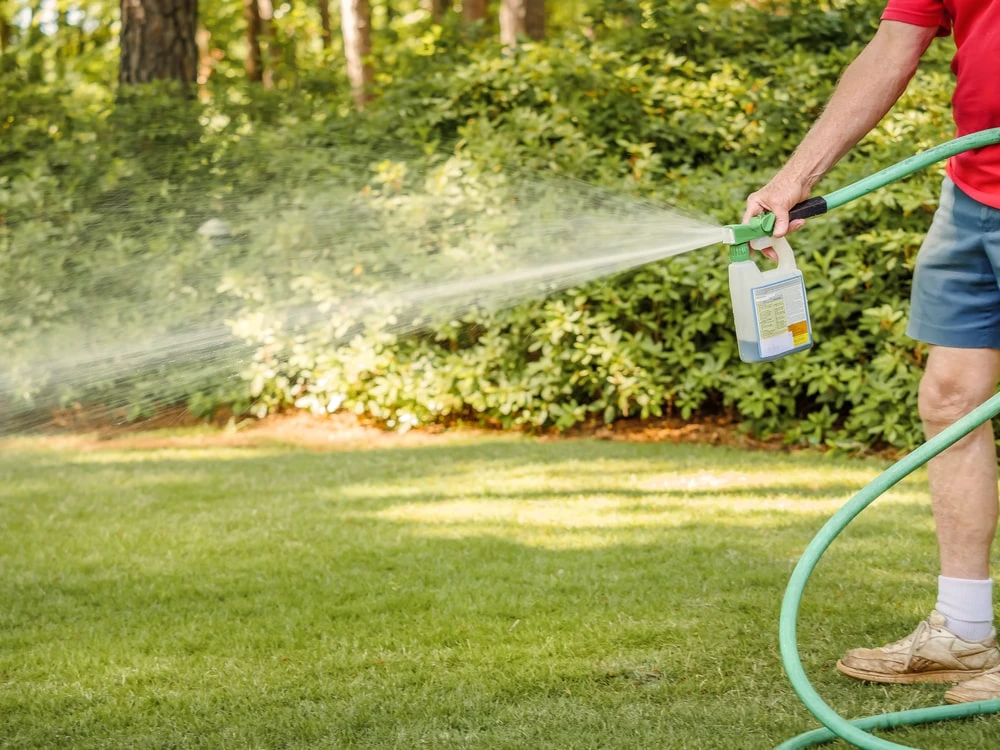
Some fertilizers are available in a liquid form, which can be sprayed onto lawns. While application is fairly straight-forward, handling and storage can be a bit of a challenge. Here are some additional pros and cons of using liquid fertilizer:
Pros:
- Easy to apply with a garden hose.
- Fast-acting. Can reach roots quickly.
Cons:
- May need to be applied more often than dry fertilizer.
- Can evaporate quickly.
- Must be handled with care and stored safely to avoid spills.
Winter Fertilizer Application
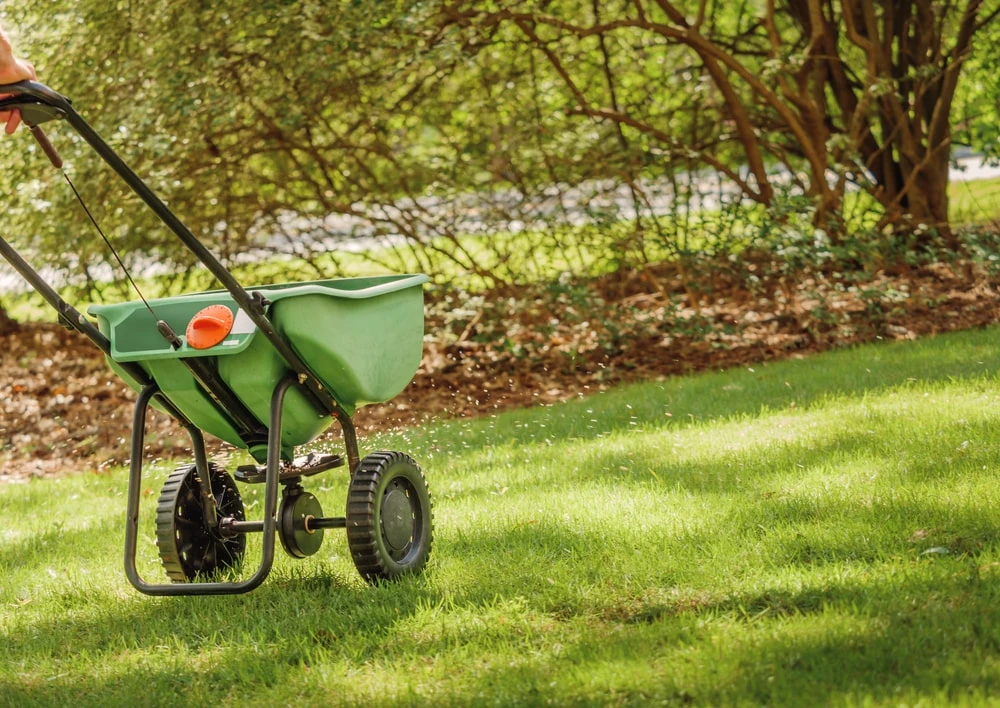
While applying fertilizer yourself is a straightforward process, too much or too little can damage your plants, trees, and lawn. Hiring a local lawn care expert to do the work will ensure your winter fertilizer is applied at the right time, and in the right way. They will provide you with a free estimate and likely offer a full range of landscape services to keep your plants and lawn looking great all year.
Preparing Your Garden for Winter Fertilization
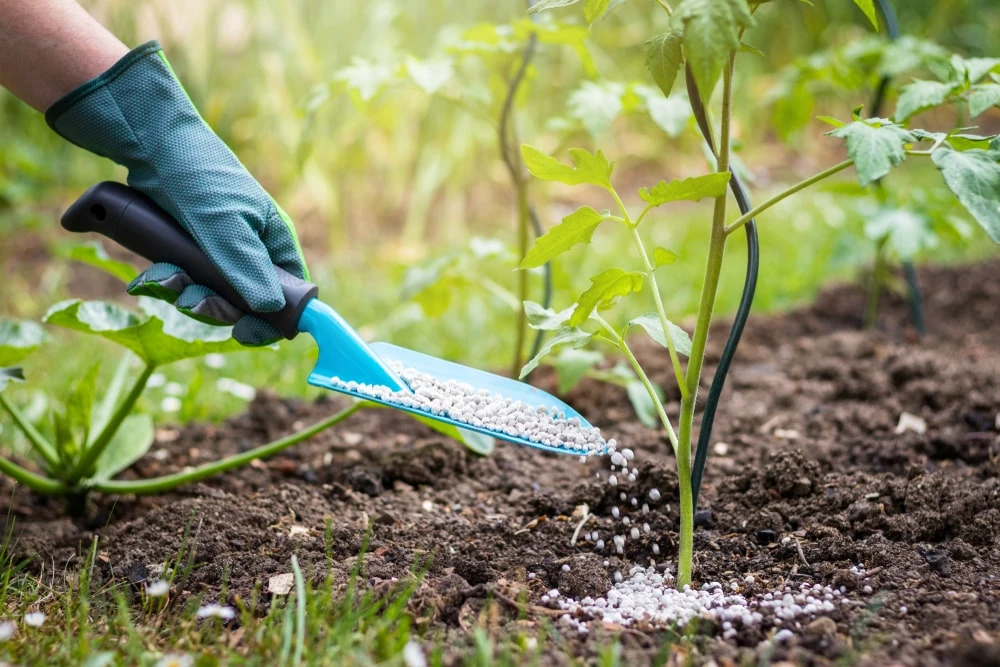
Prepping your garden for the winter season will set it up for success in the next growing season. This means applying winter fertilizer at the right time of the year. Here is a winter fertilizing schedule you should follow.
Winter Fertilization Schedule
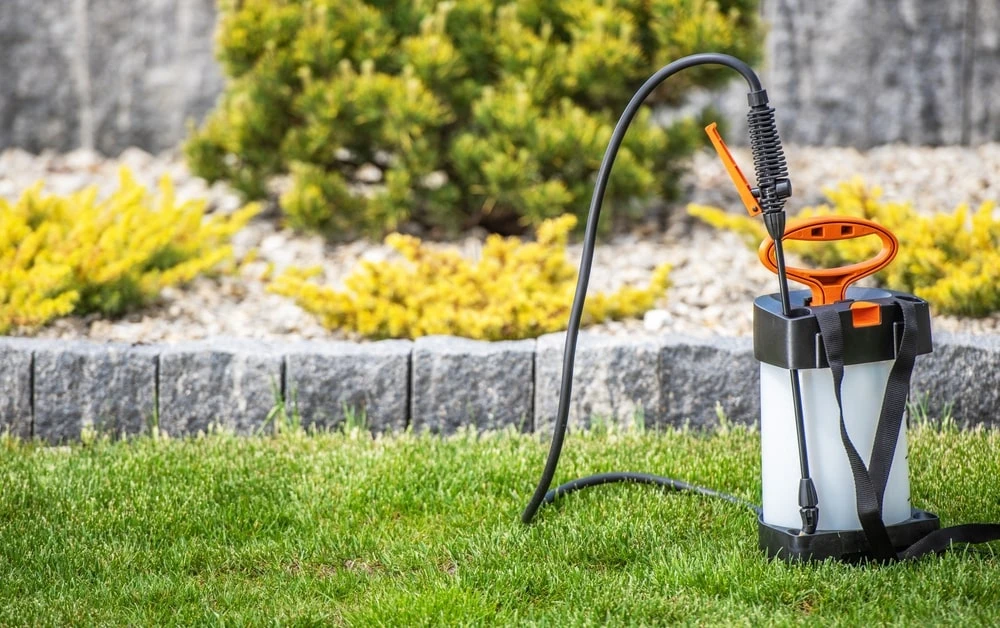
While knowing what fertilizer to use in winter is an important first step, you also need to set up a winter fertilizer schedule. For lawns, your grass type will help you determine when to apply fertilizer for the winter. It’s crucial to apply winter fertilizer before everything starts to freeze. So, depending on when winter begins to set in where you live, fertilizer should be applied before the first frost. While November may work in some areas, it may be too late in other areas.
Benefits of Winter Fertilization
Applying fertilizer for the winter is one of the most essential lawn treatments you can perform to prepare your lawn for the growing season. Cold weather can wreak havoc on your landscape. But winter fertilization increases the chances that your grass, trees, and plants survive freezing temperatures.
Winter Fertilizer Basics & Tips
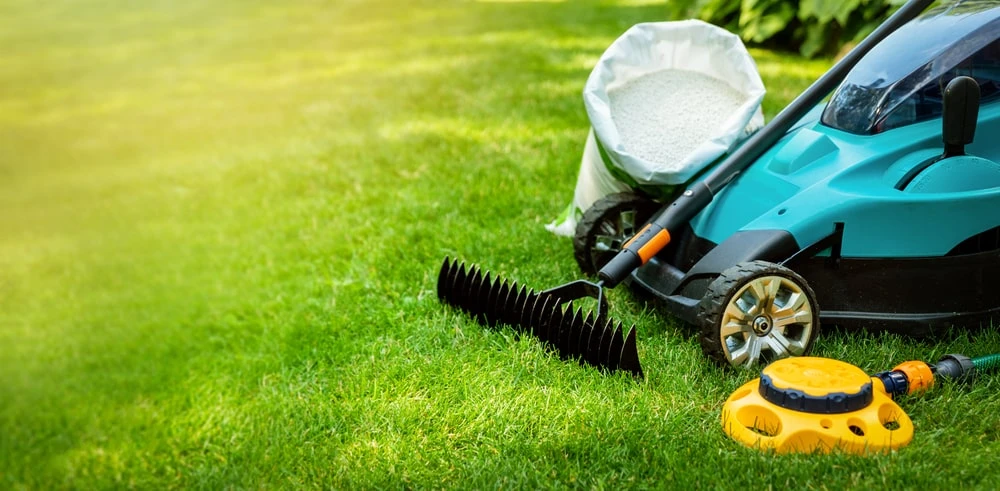
Here are some things to remember when choosing and applying winter fertilizer:
- Slow-release formulations are designed for the long haul, supplying nutrients gradually without burning the roots.
- One fertilizer application during the winter is usually recommended. A local lawn care professional can advise whether an early-winter or late-winter application is better suited for your lawn and garden needs. If you have heavy clay soil, applying fertilizer in mid-winter may be best.
- Typically, winter fertilizers are applied after the last mowing of the season.
- Water the fertilizer before you winterize your garden hoses or sprinkler system, and follow safe application guidance.
- Ask your local lawn care expert to pack an economic two-for-one punch by including pre-emergent weed killers with winter fertilizers.
Turfgrass Needs
Your turfgrass has specific needs to ensure it remains healthy and strong throughout the year. Here are some things to remember:
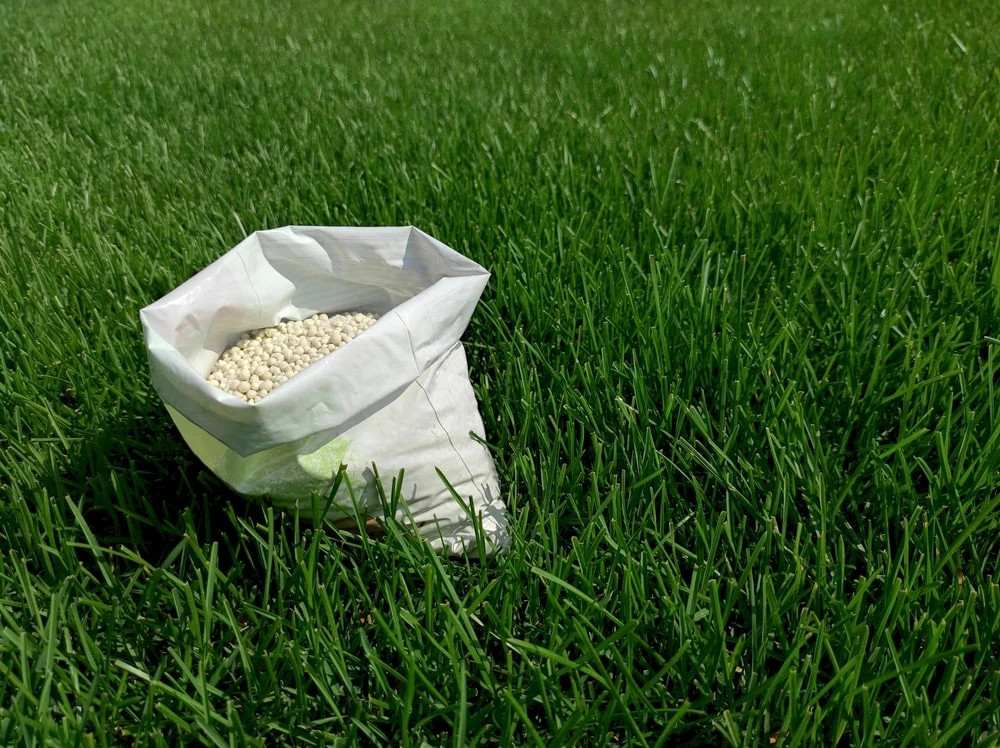
- The most important turfgrass nutrient, which is needed in larger amounts and supplied more often, is nitrogen. Nitrogen helps "green up" grass, giving your lawn that all-important curb appeal.
- Typically, nitrogen is applied to lawns at the rate of 1 pound per 1,000 square feet. However, 2 pounds of nitrogen per 1,000 square feet may be needed, depending on your turfgrass type or if your lawn was not as strong the previous growing season.
- Supply nitrogen fertilizer in early winter before the ground freezes.
Perennial Plant Needs
Your perennial plants also have specific needs to ensure they remain strong and continue to grow healthy. Here are some ways to keep your perennials healthy throughout the year:
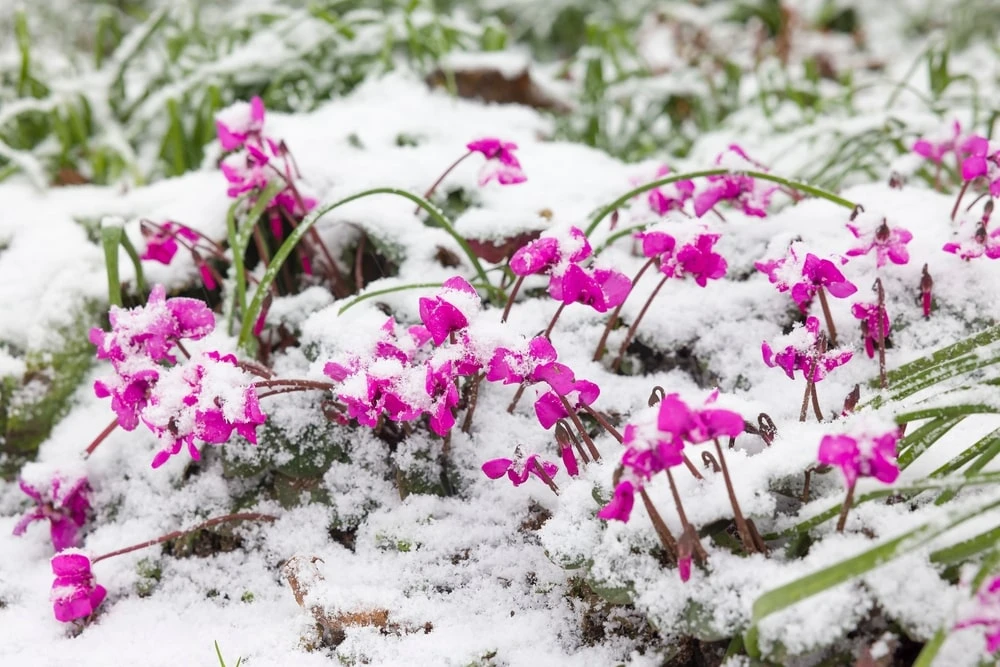
- Typically, perennial plants are fertilized in late winter, just before spring emergence or green-up.
- Early winter fertilizers may delay the dormancy of trees and shrubs, which makes plants susceptible to injury.
- Applying winter fertilizers to snowy or frozen ground may lead to fertilizer runoff into surface waters.
Professional Lawn Fertilization Services
When it comes to keeping your lawn, plants, flowers, and the rest of your landscaping healthy throughout the year, The Grounds Guys are your local experts. We understand that fertilizers are not one-size-fits-all solutions. What works for your turfgrass is probably not suitable for your trees, shrubs, or perennial flowers, so we'll help map out a "zone fertilizer" strategy that meets the varied requirements of different plants in your landscape. If you’re uncertain about performing these important lawn care tips or what fertilizer to use in winter, we can help.. Whether you lack time, experience, or confidence, you can always count on The Grounds Guys to get it done right! In fact, we’re part of the Neighborly family of home service brands, which means all our work is backed by the Neighborly Done Right Promise™, which ensures your satisfaction. To keep your lawn and the rest of your yard looking its absolute best, schedule a free estimate with us today!
